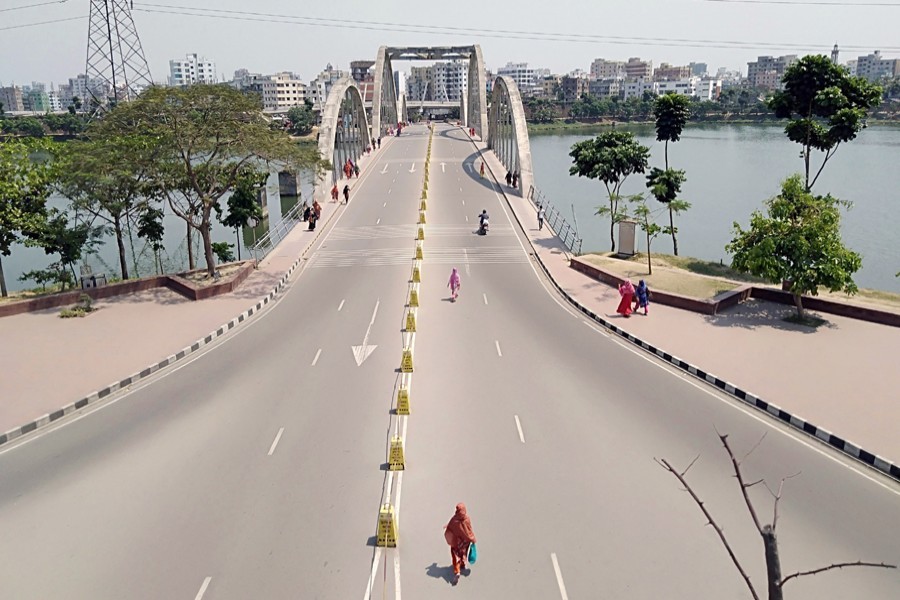
Corona-time processions and events
Shihab Sarkar | Saturday, 21 August 2021

Thanks to the Covid-19 restrictions, a lot of national-level and global events couldn't be organised last year; and also this year. Some were postponed or held online, or arranged in truncated form. A large number of events got cancelled altogether. Against this backdrop, Japan organised the Olympic Summer Games, also called Tokyo Olympics, which was scheduled for 2020. That's why despite being held in 2021, the event will be known as Tokyo Olympics 2020. The stimulus that worked behind the country's putting into all-out efforts to hold the Games was its firm stance not to kowtow to the threat posed by the pandemic. Japan was able to hold the Summer Olympics in style for the second time,after the first one held in 1964. The Cannes Film Festival of 2020 was held online on a limited scale. The organisers hope to hold the event this year in its spectacular and glitz-studded manner seen normally.
Due to the corona-induced emergencies, many nations and territories have also postponed their annual processions and carnivals --- as well as mourning marches. They include the Ashura procession in the Sub-continent. Every year, the Shiite Muslim community in particular takes out processions to mark the martyrdom of Hazrat Imam Hussain (RA) at the Karbala battleground in 680 AD, 10 Muharram, 61 Hijri Year --- popularly known as Ashura. The participants of the procession commemorating the tragic killing of Imam Hussain, a grandson of Prophet Hazrat Muhammad (SM) at the hands of anti-Islam elements cry in grief, inflict bloodied injuries on themselves, in order to glorify the martyrdom of Imam Hussain. This mournful procession has been part of a holy religious ritual and a pathos-filled occasion observed annually in Kolkata (India), Karachi (Pakistan) and Dhaka (Bangladesh). To the great pain of the residents of these cities, the Ashura processions (also called Tazia processions) were not brought out last year. It remained postponed this year, too, especially in Dhaka. The reason is the government directive on the maintenance of Covid-19 health guidelines.
The colourful Mardi Grass procession and carnival in New Orleans, USA, was not allowed to move round the city for fear of the spread of Covid-19 virus last year. As the pandemic continues to rage, it may not be allowed to take place with large participations this year. Except in India, where mammoth religious gatherings have been allowed even during the critical phase of corona outbreak, all kinds of assemblage and social and religious celebrations in Asian countries have come under state-sponsored prohibition. A glaring example is China. Its Wuhan city, during its countdown to the Chinese Lunar Year jubilations and festivity, found itself at one point completely detached from the outside world. The year was 2020. The city had been suspected to be the origin of the novel corona virus. The whole China was preparing to open up this year, when a number of its major cities began reporting cases of covid-19 outbreak. The lockdowns returned. Amid these upsetting scenarios, countries like Vietnam and Bhutan can reasonably boast of their corona-free status. The two Asian countries have somehow put in place their own health protocol-related strategies which kept the pandemic outbreaks at bay.
The Bengali New Year's carnival had lately emerged as a great festive event in Bangladesh. The 2020 outbreak of Covid-19 eventually deprived the country of the celebrations organised to welcome the New Year. As the pandemic continued taking a fierce turn, the year 2021 has also been declared one not congenial for the eagerly awaited Bangla New Year's celebrations. It was not the government prohibitions, conscious people preferred on their own to remain under shutdown. Festivals come and go; humans spend their lives vibrantly only for once.